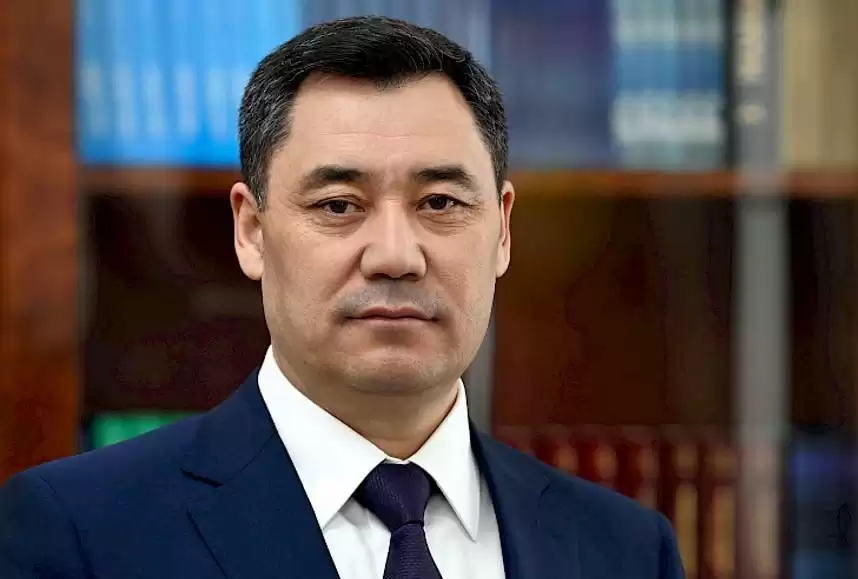Talking to reporters in Bishkek on March 28, O’Sullivan questioned the final destination of many goods imported to Central Asian nations, as well as to Armenia, Georgia, Serbia, and the United Arab Emirates, after data showed a 300 percent increase of goods coming into the area from the EU in recent months.
“The transportation of goods previously exported to Russia from the European Union, but stopped after the sanctions, has increased,” he said.
O’Sullivan pointed out that 770 items imported from the EU to other countries had been found in Russian military equipment and weapons used in its war against Ukraine, a clear sign that some nations were being used as transit points for goods to flow into Russia.
He added that he hopes to meet with top officials from Kyrgyzstan to discuss the exporting of goods from the Central Asian nation to other countries to prevent the products from making their way to Russia.
Kyrgyz Economy and Commerce Minister Daniyar Amangeldiev told RFE/RL that Kyrgyzstan’s trade with other nations is being carried out in accordance with all laws and regulations, adding however, that Bishkek cannot guarantee no sanctioned goods are being exported to Russia.
Kyrgyzstan is one of Russia’s active trading partners and a member of the Eurasian Economic Union, a trading bloc dominated by Russia that also includes Belarus, Armenia, and Kazakhstan. The grouping was conceived by Moscow as a counterweight to the European Union, though experts view it as being mainly a way for Moscow to exert economic leverage over the other countries.
Since the start of Russia’s full-scale aggression against Ukraine, the EU and the United States have sanctioned thousands of entities and individuals, while the U.S. Commerce Department has imposed prohibitive controls on exports to Russia and its ally Belarus.
The United States said earlier this month that Russian companies have evaded the sanctions using intermediaries in China, Armenia, Turkey, Uzbekistan, and the United Arab Emirates.
In April last year, the deputy chief of the presidential office in Kazakhstan, Russia’s largest trade partner in Central Asia, said his country will not help Russia evade Western sanctions, but added it will continue its economic ties with Russia within the Eurasian Economic Union, as “there is no way for our economy to do it differently.”
Source: RFERL


